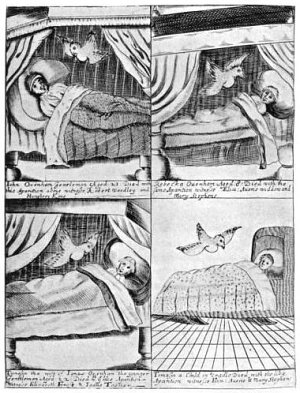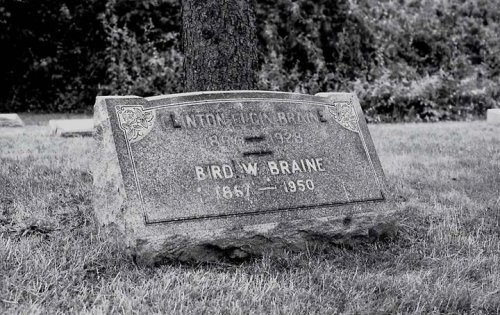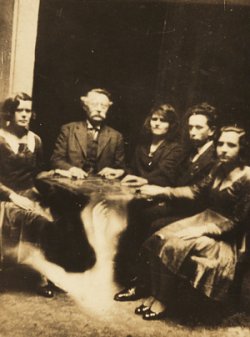Grave marker in Folsom, N.M.:
In honored memory of Sarah J. Rooke
Telephone Operator
Who perished in the flood waters
of the Dry Cimarron at Folsom
New Mexico, August 27, 1908
while at her switchboard warning
others of the danger. With heroic
devotion she glorified her calling
by sacrificing her own life that
others might live.
Old South Cemetery, Montague, Mass.:
In Memory of Mr. Elijah Bardwell
who died Janry 26th 1786 in ye 27th
Year of his Age having but a few days
surviv’d ye fatal Night when he was
flung from his Horse & drawn by ye Stirrup
26 rods along ye path as appear’d by ye place
where his hat was found & where he had
Spent ye whole following severe cold night
treading ye Snow in a Small Circle.
Emily Spear, died 1901, age 64, Glendale Cemetery, Cardington, Ohio:
My husband
promised me
that my
body should
be cremated
but other
influences
prevailed.
Lizzie Angell, died 1932, age 83, Forest Hill Cemetery, East Derry, N.H.:
I don’t know how to die.
Jennie E. Wilson, died 1882, age 29, College Hill Cemetery, Lebanon, Ill.:
She was more to me
Than I expected.




